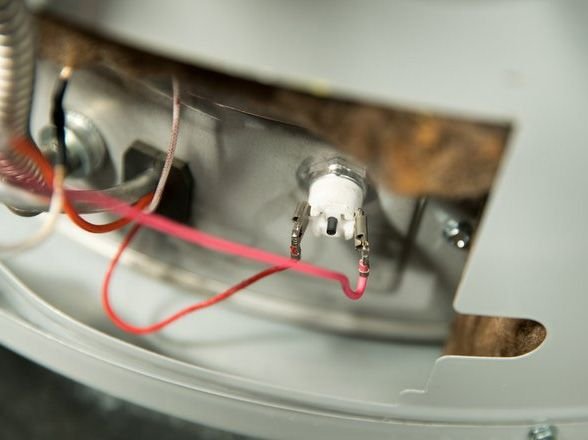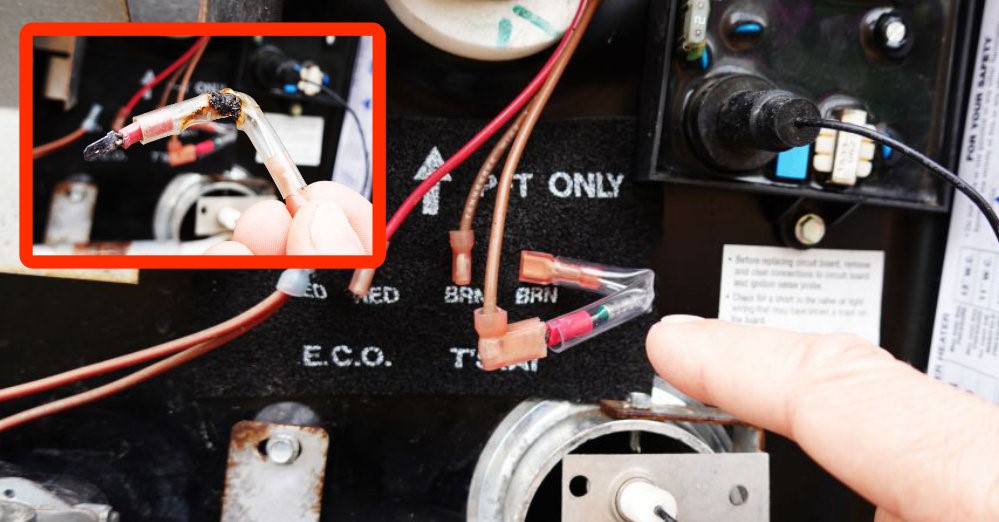Bypassing a thermal switch on a water heater is not recommended. Doing so can create safety hazards and void warranties.
Water heaters are essential appliances in many homes, providing hot water for showers, cooking, and cleaning. The thermal switch plays a crucial role in regulating temperature and preventing overheating. It acts as a safety device, shutting off the heater if it reaches dangerous levels.
Bypassing this switch may seem like a quick fix for heating issues, but it poses significant risks. Understanding the importance of this component can help homeowners make informed decisions. Regular maintenance and proper troubleshooting are safer alternatives to ensure your water heater operates efficiently and safely. Prioritize safety to avoid costly repairs and potential hazards.

Credit: www.youtube.com
Page Contents
Introduction To Thermal Switches In Water Heaters
A thermal switch in a water heater plays a crucial role. It helps control the temperature of the water. If the water gets too hot, the thermal switch turns off the heating element. This prevents the heater from causing damage or starting a fire.
Safety is a major reason for having a thermal switch. It protects both people and property. Bypassing a thermal switch may seem tempting, but it can lead to serious hazards. Always consider the risks before making any changes to your water heater.
| Function | Significance |
|---|---|
| Controls water temperature | Prevents overheating |
| Shuts off heating element | Reduces fire risk |
| Ensures safe operation | Protects users and property |
Reasons For Bypassing A Thermal Switch
Bypassing a thermal switch can lead to serious problems. Common issues include a faulty switch, frequent tripping, or a malfunctioning heater. These can cause inconsistent water temperatures.
Temporary solutions may seem appealing. They can provide quick relief but often create safety risks. Permanent fixes are crucial for long-term reliability. Repairing or replacing the thermal switch ensures safe operation.
| Issue | Temporary Solution | Permanent Fix |
|---|---|---|
| Faulty switch | Bypass the switch | Replace the switch |
| Frequent tripping | Reset the heater | Inspect wiring |
| Malfunctioning heater | Use cold water | Repair or replace heater |
Potential Risks Of Bypassing
Bypassing a thermal switch on a water heater can lead to serious safety hazards. It may cause the heater to overheat. This can result in burns or even fires.
Without proper temperature control, water may reach dangerous levels. This can harm anyone using the hot water. Always ensure safety features are in place.
Bypassing the switch may also void your warranty. Manufacturers often require all parts to function correctly. Ignoring this can lead to expensive repairs.
Legal implications can arise if an accident occurs. Injuries can lead to lawsuits or insurance claims. Always prioritize safety and follow regulations.
Legal And Manufacturer’s Warnings
Bypassing a thermal switch on a water heater can be dangerous. It can lead to overheating and potential fires. Authorities warn against this practice.
The U.S. Consumer Product Safety Commission emphasizes safety first. They advise against any modifications that could compromise safety features.
Manufacturers clearly state that bypassing thermal switches voids warranties. This action can also lead to costly repairs or replacements.
| Authority | Advice |
|---|---|
| U.S. Consumer Product Safety Commission | Avoid bypassing safety features. |
| Manufacturers | Bypassing voids warranty. |
Alternative Solutions
Professional repair services can help fix your water heater safely. They have the right tools and skills. Technicians can diagnose the problem quickly. This saves time and prevents further issues.
Replacement options are available for faulty thermal switches. You can choose from various brands and models. Select a switch that fits your water heater’s specifications. Always check reviews before buying a replacement part.
| Service | Description |
|---|---|
| Repair | Fix the current thermal switch. |
| Replacement | Install a new thermal switch. |

Credit: www.doityourself.com
Preventive Measures
Regular maintenance is key to a safe water heater. Check the thermostat settings often. Clean the heater and surrounding area regularly. Look for leaks or corrosion on pipes. Replace any damaged parts immediately to prevent issues.
Early detection of faults can save time and money. Listen for unusual noises from the heater. Notice if water takes longer to heat. Check for discoloration in the water. If any signs appear, contact a professional right away.
Understanding The Consequences
Bypassing a thermal switch on a water heater can lead to serious issues. This switch is vital for safety. It prevents the heater from overheating, which can cause damage and even fires.
Without this safety feature, the water heater may run continuously. This can result in higher energy bills and premature wear on the unit. Regular maintenance becomes more important in this case.
There are also significant safety concerns for households. Hot water can cause burns if the temperature is too high. Families need to consider these risks before making any changes.
| Impact | Description |
|---|---|
| Overheating | Can lead to equipment failure and fire hazards. |
| Increased Costs | Higher energy bills due to constant operation. |
| Safety Risks | Increased chance of burns and other injuries. |
Final Thoughts And Best Practices
Bypassing a thermal switch on a water heater can be risky. It may lead to overheating and cause serious damage. Always consider the safety of your household first.
Here are some important risks and tips for homeowners:
- Understand the function of a thermal switch.
- Consult a professional before making any changes.
- Regularly inspect your water heater to avoid issues.
- Install safety devices to prevent overheating.
- Follow manufacturer guidelines for repairs and maintenance.
Keeping your water heater safe ensures a comfortable and secure home environment.

Credit: familyrvingmag.com
Conclusion
Bypassing a thermal switch on a water heater can lead to serious safety risks. It’s crucial to understand the implications before attempting any modifications. Always prioritize safety and consult a professional if you’re unsure. Taking the right steps ensures your water heater operates efficiently and safely for years to come.
